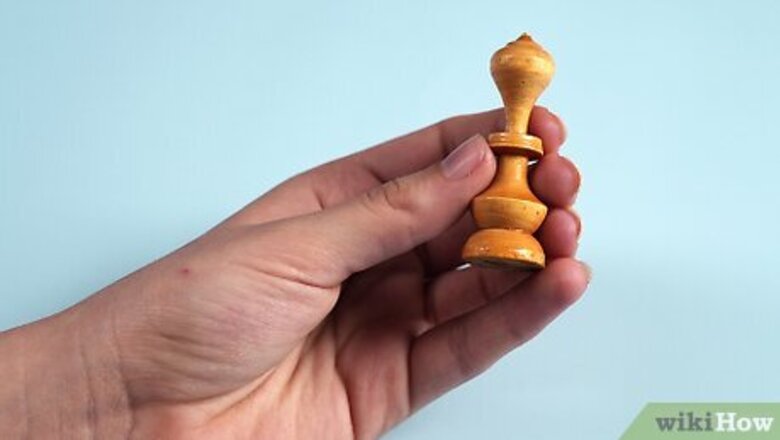
views
Making a Stamp Out of a Button
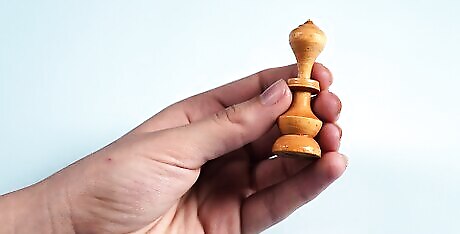
Find something to use as a handle for your stamp. A plain wine cork work great, but you an also use an old chess piece for something more antique-looking. You can also make your own handle by rolling some polymer clay into a tube the size of your thumb, and then baking it in your oven according to the instructions on the package. If you decide to use a chess piece, be sure to peel the felt away from the bottom. Most polymer clays need to be baked at 275°F (135°C) for 20 to 30 minutes, depending on the thickness of the piece.
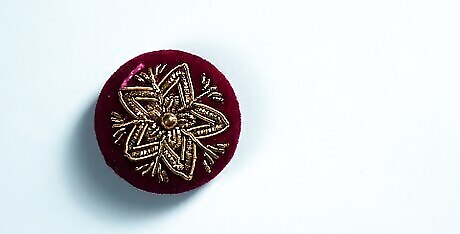
Find an interesting button to use for the design part of your stamp. Coat buttons are great for this, because they don't have button holes at the front, which can affect your design. If you can't find an interesting button, you can also use a brooch, cameo pin, a charm, or a pendant.
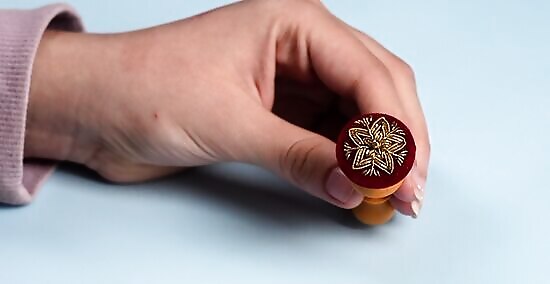
Hot glue the button to the handle. Make sure that you are using enough glue so that the button sits securely on the bottom of the handle. If you are using a chess piece or a polymer clay tube as your handle, then you can use 2-part epoxy clay for something more durable. To use 2-part epoxy clay: cut off equal amounts of part A and part B, then mix them together until you get a uniform color. Mold the clay to the base of the handle, then press the button into it. Smooth down any jagged or uneven edges with your finger. Once the clay cures, you can sand any roughness down further. You can also use another type of thick glue, such as industrial-strength glue. Do not use white, school glue. It is not strong enough.
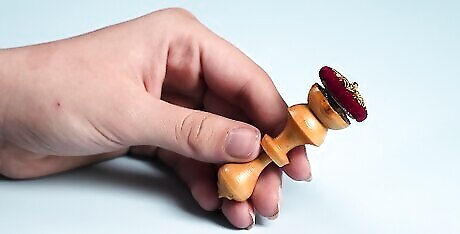
Let the glue set. If you used hot glue, this should only take a few minutes. If you used 2-part epoxy, this might take longer.
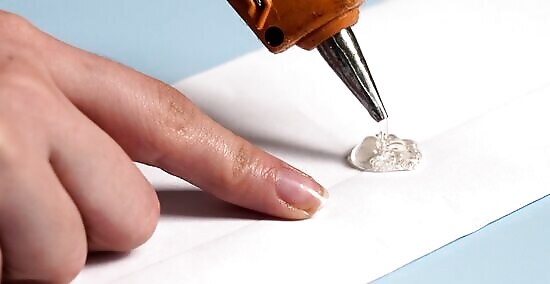
Use the stamp. Rub a little bit of oil onto the design part of the stamp, then press it into a puddle of hot wax or hot glue. Wait a few seconds, then slowly pull the stamp away. For more detailed instructions, refer to the methods on making wax seals and hot glue seals.
Making a Stamp Out of Polymer Clay
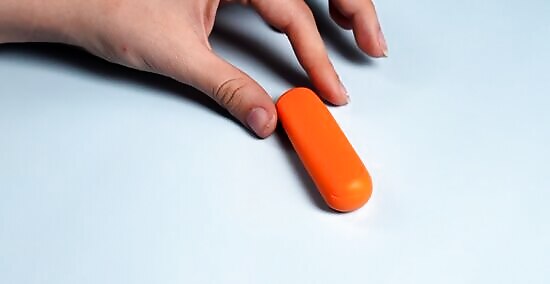
Roll some polymer clay into a tube, about the size of your thumb. If you'd like, you can make it taper towards the middle to make it easier to grab onto.
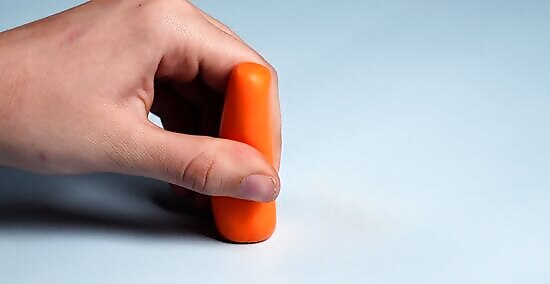
Tap the bottom of the tube against a flat surface. This will give you a nice, smooth surface to work on.
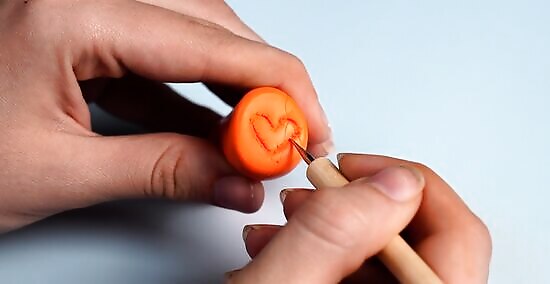
Carve a design into the bottom of the tube. Many clay-working tools are too big to carve such intricate designs. Luckily, you can use just about anything to carve your design, such as a: ball-point pen, knitting needle, toothpick, stylus, or paperclip. You can also "stamp" a design into the clay. Simply find a fancy coat button or charm, and press it into the clay. Carefully pull the button or charm away. The indent is your design.
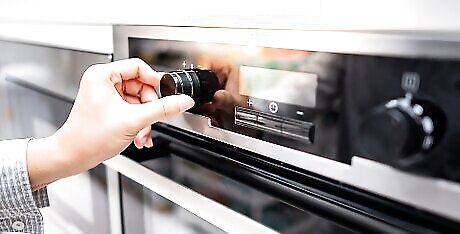
Bake the clay piece(s) according to the instructions on the package. Preheat your oven to the temperature specified on the package, usually about 275°F (135°C). Once the oven is hot, stick the piece into the oven and wait the time specified on the package, usually 20 to 30 minutes, depending on the thickness of the piece.
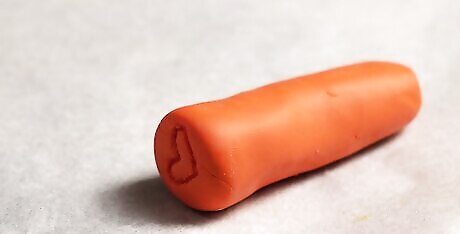
Let the stamp cool. If you'd like, you can sand the bottom of the stamp gently to make it perfectly smooth. Do this by placing a sheet of fine-grit sandpaper on a flat surface, and then rubbing the base of the stamp back and forth across it. This should not affect your design, because it is carved into the stamp. Rinse the stamp when you are done, then part it dry.
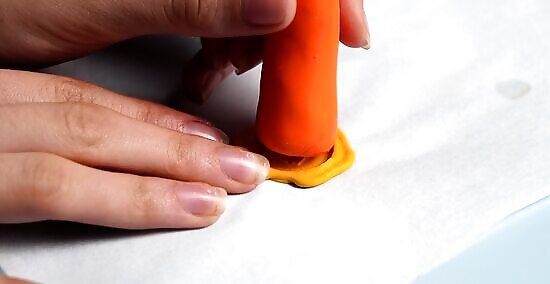
Use the stamp. Lightly oat your stamp with oil or water first, then press it into a puddle of melted wax or hot glue. Wait a few seconds, then pull the stamp away. For more detailed instructions, refer to the methods on making wax seals and hot glue seals. You can also make a seal out of clay. Simply roll a bit of polymer clay into a ball, then flatten it. Rub some oil or water onto the stamp, then press it into the clay. Gently pull the stamp away, then bake the clay piece according to the package directions.
Making a Wax Seal
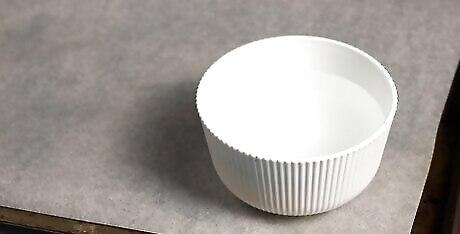
Work above a fire-proof surface and have some water near by. You will be working with fire, and with fire, come many risks. Even if you are extra careful, there is a chance of the wax igniting as it drips onto your paper. This can result in a small fire. Work on top of a tiled counter or a clean, metal baking sheet. Have a large glass of water near by—something that is easy to grab and spill. This method is recommended for stamps made out of metal. You can use other stamps, such as clay ones, but they will be more likely to stick to the wax.
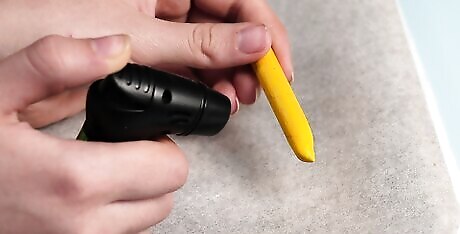
Melt your wax. Try to get a wax stick made specifically for making wax seals. If you cannot find one, then you can use a crayon instead; just be sure to peel the paper away first. Hold the wax in one hand, and a lighter in the other. Ignite the lighter, and hold the wax up to it. If you are using a wax stick that has a wick inside of it, light the wick, and let it burn for a few moments. You can also use a candle instead.
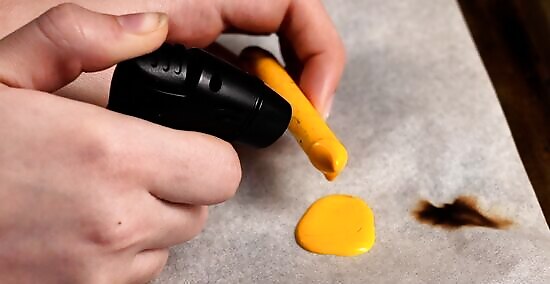
Let the wax drip onto the paper where you want the seal to go. Keeping the wax stick close to the flame, hold it directly above the paper. Let a few, big drops of wax drip onto the paper, until you get a puddle that is the same size as your seal. If you are using a candle or wicked wax stick, hold the candle/wax stick at a 45-degree angle above the paper. Black soot may get into your wax, especially if you are using a wicked stick. This is normal.
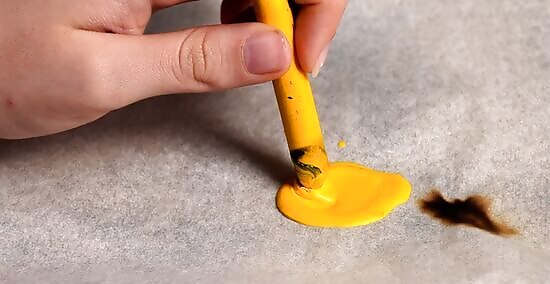
Stir the wax using your wax stick. Use the opposite end of your wax stick—the one that never got melted. Dip it into the puddle, and swirl it around. This will help give you a uniform color and thickness. It will also help get rid of any air bubbles.
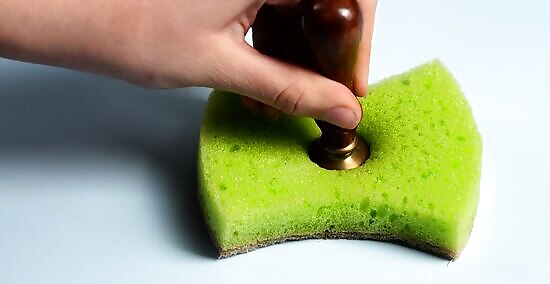
Dampen your stamp with some water. A quick and easy way to do this is to tap the base of the stamp against a damp sponge. This is very important. If you work with a dry stamp, the hot wax may get stuck to it. You can use a store-bought stamp meant for making wax seals, or you can make your own stamp using the methods above; do not use a rubber ink stamp. Use cold water. If your stamp gets too hot, the wax won't cool down fast enough. It might also stick to your stamp. If you are working with a non-metal stamp (such as a clay stamp), use oil instead. Any cheap oil, such as vegetable oil, will do.
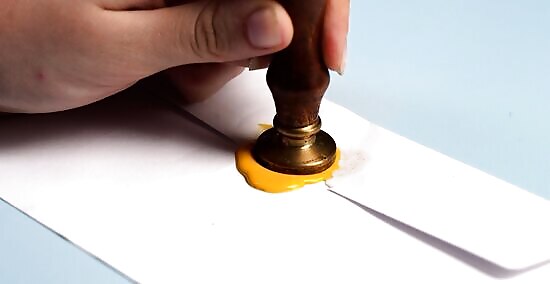
Orient the stamp, then press it into the wax. Hold your stamp over the wax, and peak under it. Make sure that the design or letter are facing the right direction, then press the stamp firmly into the wax. To lessen the chances of sticking, let the wax cool for about 30 to 40 seconds first.
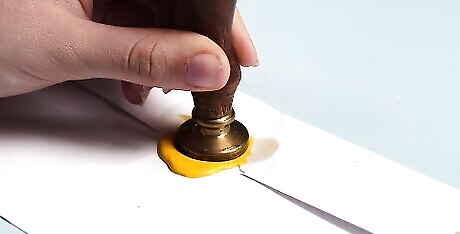
Hold the stamp against the wax for about 10 to 15 seconds. During this time, the wax will start to cool and harden.
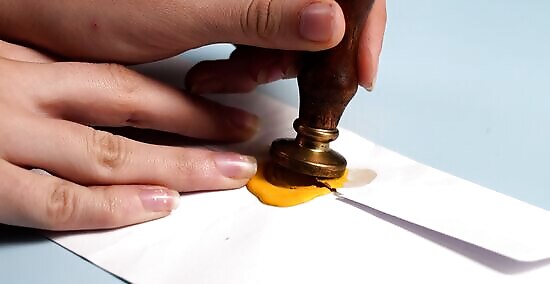
Gently pull the stamp away from the wax. If you feel a "tug" on the stamp, that means that the wax hasn't cooled enough. Don't pull the stamp away. Instead, hold it against the wax for a few more seconds, then try pulling it away again. If you try to pull the stamp away too soon, the design may not form properly. Gently rotate the stamp around the wax before you pull it away. This will allow the wax to gently release the stamp.
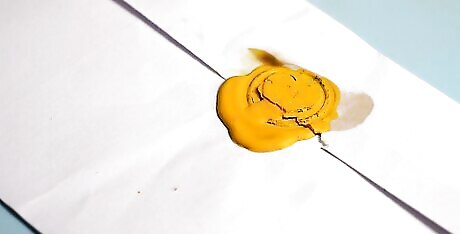
Let the wax finish hardening. Even if the design the embedded clearly in the wax, the wax may still be hot and squishy. Don't touch or handle the seal until the wax cools completely. After this, your wax seal is complete.
Making a Hot Glue Seal
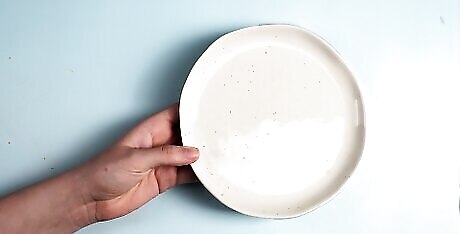
Get a smooth, heat-safe surface. You will be making your seal on this, and then peeling it off. Make sure that the surface is smooth, and that it can take heat. A silicone mat, a glass tile, or a plate would be ideal. You can also use a sheet of aluminum foil or a metal baking sheet. In a pinch, you can also use a sheet of paper. Keep in mind that, after you peel the seal away, some of the paper will cling to the back. This method is great if you need to make a lot of wax seals.
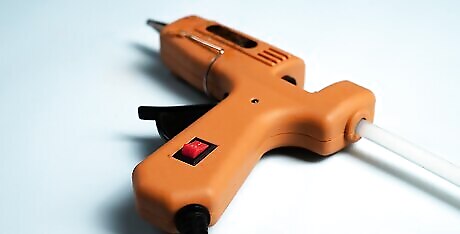
Allow the hot glue gun to heat up first. You can use plain hot glue sticks or colored hot glue sticks. Keep in mind that you can always paint your seal when you are done. Some arts and crafts stores also sell special wax sticks meant for hot glue guns and making wax seals; you can use one of those instead. Crayons are not recommended, as they can damage your hot glue gun. If you do decide to use a crayon, gently push the it down into the hot glue gun, otherwise, it may leak out the sides. Consider placing your stamp on top of an ice pack. This will chill your stamp down, and help the hot glue seal set faster. Your stamp can chill while your hot glue heats up!
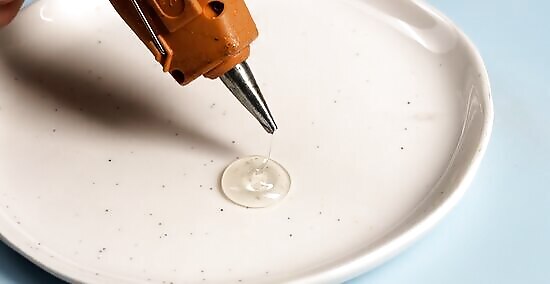
Make a coin-sized glob of hot glue on your work surface. It should be about the same size as your stamp. Keep in mind that the glue will spread about ⅛-inch (0.32 centimeter) after you press the stamp into it.
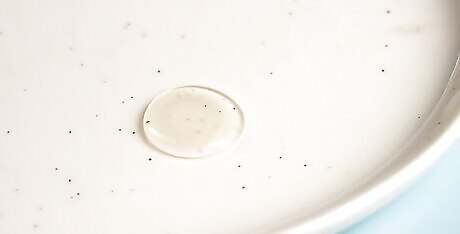
Wait for the glue to cool for about 30 seconds. During this time, you can also rub the surface of the stamp with some vegetable oil. This is especially recommended for stamps that are not made out of metal. Hot glue won't stick well to metal, but it will stick to other materials, including clay.
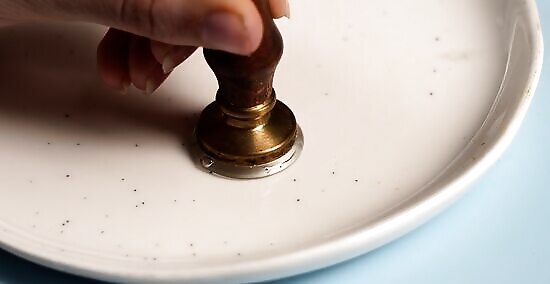
Press the stamp into glue, wait 30 to 60 seconds, then pull the stamp away.Don't worry if some of the glue or wax sticks to the stamp. This happens sometimes. Let the glue or wax harden up first, then pick it away with a pin or needle. You can use a metal, store-bought stamp meant for making wax seals, or you can make your own stamp using one of the methods above.
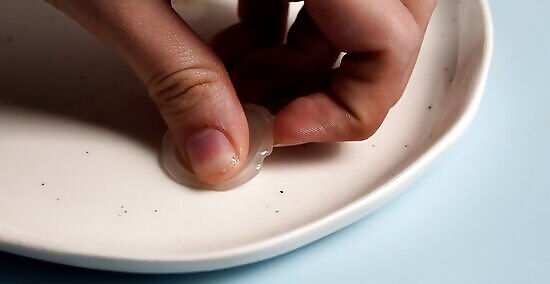
Wait for the wax seal to cool all the way, then peel it off. If you made yours on a sheet of paper, you will likely have bits of paper clinging to the back. This should not be a problem, since you will be gluing the seal onto another surface anyway.
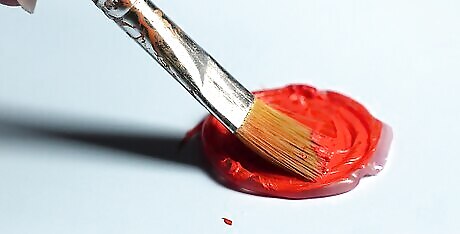
Paint the stamp using acrylic paint. Unless you used a colored hot glue stick, your wax seal will turn out clear or frosted-white. If you want, you can paint it a more interesting color. Typical wax seal colors are red, black, or gold, but you can use any color you want. If you oiled your stamp, you will need to wash the seal with soap and water, or the paint won't stick. If you are making a lot of seals, you can also spray paint them instead. Use a glossy color for the most realistic effect.
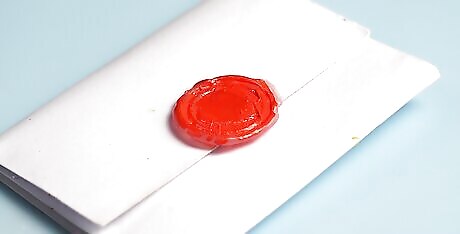
Use the wax seal. Put a drop of hot glue onto the back of the wax seal, then press it onto a letter, roll of parchment, or envelope. You can also use it as a decoration for packages tied with ribbon or twine. Be sure to use a low-temp hot glue gun for this; a high-temp hot glue gun will melt the seal. If you are shot on hot glue gun sticks, you can use glue dots instead.



















Comments
0 comment